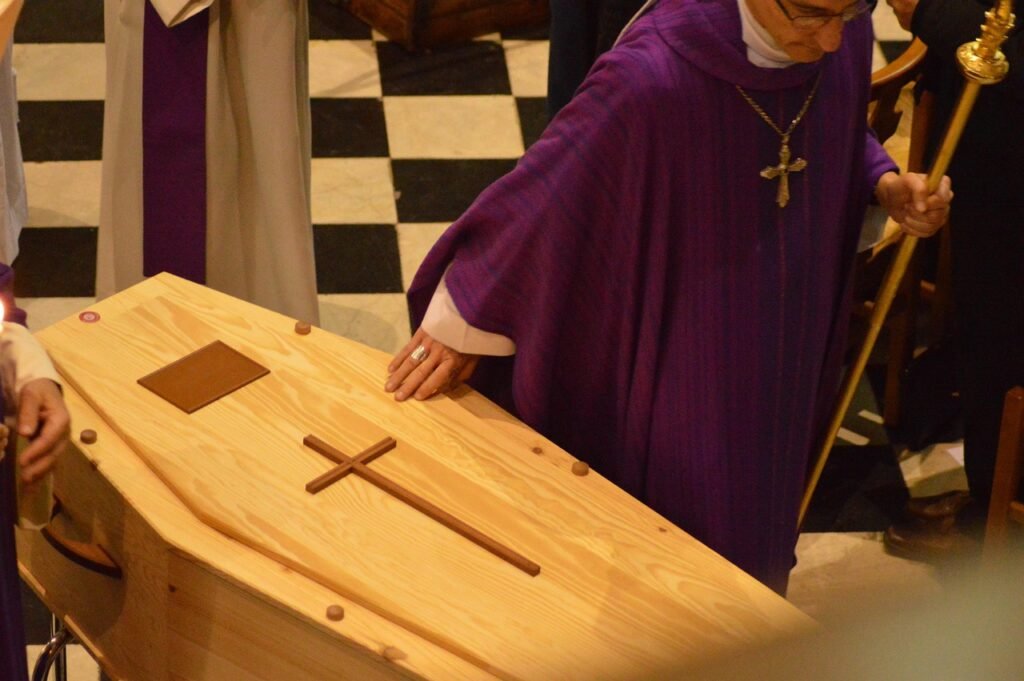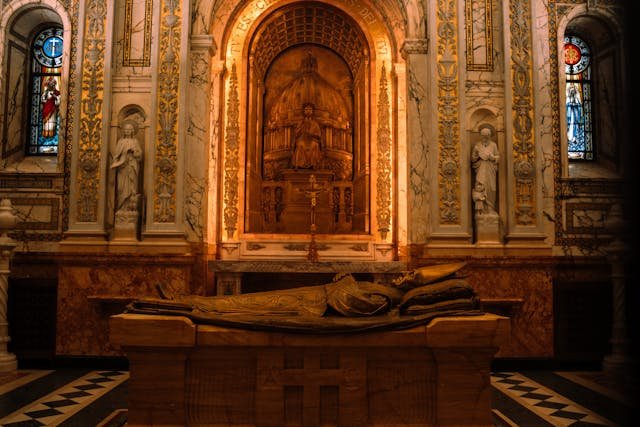
There is a quiet violence in the way some religious teachings demand endurance at all costs. Where leaving is framed as betrayal, but slow destruction is tolerated, even sanctified. Marriage becomes a holy trap, a divine contract where suffering is valorized and escape is sin. The theology of “till death do us part” twists into something darker: a doctrine that would rather see a coffin than a signed divorce paper. It is a faith that offers no mercy for the living but absolves the cruelty that grinds them down. And sometimes, the only way out it permits is death, mysterious, untimely, and wrapped in the silence of a community that would sooner bury its dead than question its dogma.
This is not just about marriage. It is about how religion can become a cage, how devotion can turn into a death sentence. When a man prays for freedom and is told the only acceptable answer is to endure or to perish, what does that say about a faith that claims to value life? When a woman, equally trapped, is praised for her endurance while her quiet resentment erodes her husband’s spirit, his health, his very will to live, what does that say about love? There are martyrs who die for their faith, and then there are those whose faith kills them softly, in the name of holiness.
The Theology of Trapped Souls: When God’s Will Becomes a Death Warrant

Religion often speaks of marriage as sacred, unbreakable, a bond that must be preserved at any cost. But what happens when that cost is a human life? When a man pleads with heaven for relief, only to be told that suffering is his cross to bear? The language of faith can become a weapon: “God hates divorce,” they say, but does He love despair? Is God really asking someone to slowly fall apart under the weight of a loveless life? This is how my brother lived. This is how he died. Slowly unraveling under the weight of a loveless life, enduring constant character assassination, watching his innocent children get turned against him, trapped in a home where hatred grew so dark it bordered on wishing him dead. And he stayed too long, because leaving was called a sin.
There is a perverse irony in how some religious communities treat divorce like a moral failure while turning a blind eye to the quiet violence of emotional neglect, psychological torment, and even physical decay. And all the while, the faithful nod in approval, because at least they stayed. At least they didn’t “break the covenant.” But what is a covenant when one party suffocates in it? What is holy about a union that demands a funeral as its only resolution?
The Martyrdom of the Obedient: Why Death Becomes the Only Escape

There is a sacred violence in demanding endless obedience from those already drowning, a perverse piety that crowns the suffering as saints while quietly ushering them toward the grave. When religion strips away every exit but one, death ceases to be tragedy and becomes deliverance; the coffin is no longer a loss, but the only permissible form of liberation. What does it mean when faith constructs a passage where the sole approved way out is annihilation? The martyrdom of marriage is not noble, it is the slow surrender of those taught that to leave is betrayal, but to perish is holy. We must confront the chilling truth: some theologies do not preserve life. They ritualize its sacrifice, blessing the obedient with one final, fatal act of devotion.
There is a tragic nobility assigned to those who suffer silently, who die rather than defy. They become martyrs of matrimony, their stories whispered in hushed tones, “He never complained,” “She endured until the end.” But martyrdom implies choice. What if the real tragedy is that they were never given one? What if the theology that claims to uphold life instead funnels the suffering toward a single, grim conclusion? When the only righteous way out is a coffin, faith ceases to be salvation. It becomes a burial shroud.
When the Altar Becomes a Tomb: The High Cost of Holy Endurance

There should be no glory in a death that could have been prevented by freedom. There should be no virtue in endurance that demands a corpse as proof of devotion. If religion teaches that love is patient and kind, then it must also acknowledge that patience should not mean annihilation, and kindness should not mean complicity in destruction.
The tragedy is not just in the lives lost but in the silence that follows, the refusal to question, to challenge, to admit that sometimes, the most holy act is not staying, but leaving. Until then, we will keep burying the obedient, the faithful, the trapped. And we will call it God’s will, when in truth, it is only our failure to imagine a mercy greater than the grave.
— Banchu (Nama)
Author’s Note
I wrote this because my brother would still be alive today if his faith had allowed him to leave years ago. Because his prayers for relief were met with doctrine rather than mercy, because his suffering was called devotion while his survival was labeled sin. If love means chaining someone to their own destruction, what kind of love is that? I will never stop believing he deserved better, never stop raging against a theology that offered him no escape except the one that shattered us all. This is for Fika, who deserved freedom, and for every trapped soul still waiting for a miracle, may they find their way out before the only exit left is a coffin.